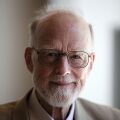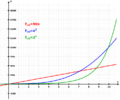Template:Selected anniversaries/January 11: Difference between revisions
No edit summary |
No edit summary |
||
| Line 1: | Line 1: | ||
<gallery> | <gallery> | ||
File:Pedro Nunes.png|link=Pedro Nunes (nonfiction)|1502: Mathematician, cosmographer, and academic [[Pedro Nunes (nonfiction)|Pedro Nunes]] born. He will be one of the greatest mathematicians of his time, known for | File:Pedro Nunes.png|link=Pedro Nunes (nonfiction)|1502: Mathematician, cosmographer, and academic [[Pedro Nunes (nonfiction)|Pedro Nunes]] born. He will be one of the greatest mathematicians of his time, known for his mathematical approach to navigation and cartography. | ||
File:English Lottery 1566 Scroll.jpg|link=Lottery (nonfiction)|1569: First recorded [[Lottery (nonfiction)|lottery]] in England. | File:English Lottery 1566 Scroll.jpg|link=Lottery (nonfiction)|1569: First recorded [[Lottery (nonfiction)|lottery]] in England. | ||
Revision as of 15:03, 3 July 2017
1502: Mathematician, cosmographer, and academic Pedro Nunes born. He will be one of the greatest mathematicians of his time, known for his mathematical approach to navigation and cartography.
1569: First recorded lottery in England.
1570: Didacus automaton uses Gnomon algorithm to predict winning lottery numbers.
1638: Scientist and bishop Niels Steensen born. He will question explanations for tear production, the idea that fossils grow in the ground.
1711: Inventor and priest Bartolomeu de Gusmão collaborates with Didacus automaton on design of new airship.
1757: engineer and naval architect Samuel Bentham born. He will design the first Panopticon.
1934: Computer scientist Tony Hoare born. He will go on to invent the quicksort algorithm, and make other contributions to computer science.
New class of crimes against mathematical constants targets vulnerable quicksort routines.







